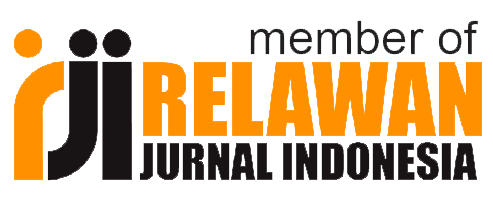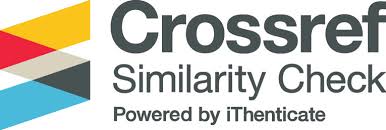Developing OSCE for Pharmacy Students in The Pandemic Era
Abstract
The COVID -19 pandemic has affected many aspects of life, one of which is in the field of education. Transformation toward various e-learning process has been conducted in order to prevent transmission of the disease caused by massive gathering. Obstacles appear when trying to deliver and assess practical skills which are usually done face to face with the teachers or instructors. These obstacles are also seen in pharmacy schools where skills such as patient counselling, compounding and dispensing, etc. are important competencies for the students to achieve. In order to overcome these obstacles, we developed a method for conducting the objective structured clinical examination (OSCE) through online process. This study was aimed to evaluate the new online OSCE method for pharmacy students to be conducted in the pandemic era.
The evaluation of online OSCE trial was conducted using a simple Google form-based questionnaire which evaluated the platform used, the process of online OSCE and the instruction understandings. Respondents consisted of 52 examinees from the students of Pharmacist Profession Program UMY and 15 examiners from the lecturers or assistants who participated in the online OSCE trial held in June 2020. Data was analyzed descriptively to give a comprehensive picture on respondents’ perception towards the new method.
The result showed that 78.8% examinees and 73.3% examiner agreed that the platform was easy to use, 65.4% examinees and 100% examiner agreed that the whole process of the exam was easy to understand, only 15.4% examinees and 26.7% examiner agreed that the time was sufficient, 73.1% examinees and 100% examiner agreed that the instructions of each station was clear. It can be concluded from the study that online OSCE method was feasible to be conducted during pandemic, particularly, for clinical pharmacy skills. Adjustment should be done to ensure that the time allocation for each station is adequate.
References
[2]. Branch C. An assessment of students’ performance and satisfaction with an OSCE early in an undergraduate pharmacy curriculum. Currents in Pharmacy Teaching and Learning. 2014 Jan 1;6(1):22-31. DOI: 10.1016/j.cptl.2013.09.006
[3]. Schleicher A. The Impact of Covid-19 on education insights From Education At a Glance 2020.
[4]. Adnan M, Anwar K. Online Learning amid the COVID-19 Pandemic: Students' Perspectives. Online Submission. 2020;2(1):45-51. DOI: 10.33902/JPSP. 2020261309
[5]. Crawford J, Butler-Henderson K, Rudolph J, Malkawi B, Glowatz M, Burton R, Magni P, Lam S. COVID-19: 20 countries' higher education intra-period digital pedagogy responses. Journal of Applied Learning & Teaching. 2020;3(1):1-20. DOI: 10.37074/jalt.2020.3.1.7
[6]. Kristina SA, Gustriawanto N, Rokhman MR, Aditama H, Sari IP. Students’ first experience with Objective Structured Clinical Examination in a pharmacy school in Indonesia. Journal of Applied Pharmaceutical Science. 2018 Sep;8(09):102-6. DOI: 10.7324/JAPS.2018.8915
[7]. Munoz LQ, O'Byrne C, Pugsley J, Austin Z. Reliability, validity, and generalizability of an objective structured clinical examination (OSCE) for assessment of entry-to-practice in pharmacy. Pharmacy Education. 2005;5(1). DOI: 10.1080/15602210400025347
[8]. Ilag BN. Microsoft Teams Overview. In Understanding Microsoft Teams Administration 2020 (pp. 1-36). Apress, Berkeley, CA. DOI: 10.1007/978-1-4842-5875-0_1
[9]. Rojabi AR. Exploring EFL Students' Perception of Online Learning via Microsoft Teams: University Level in Indonesia. English Language Teaching Educational Journal. 2020;3(2):163-73. DOI: 10.12928/eltej.v3i2.2349
[10]. Martin L, Tapp D. Teaching with Teams: An introduction to teaching an undergraduate law module using Microsoft Teams. Innovative Practice in Higher Education. 2019 May 7;3(3).
[11]. Menkes RI. Peraturan Menteri Kesehatan Republik Indonesia Nomor 72 Tahun 2016 Tentang Standar Pelayanan Kefarmasian Di Rumah Sakit.
[12]. Mueller SK, Sponsler KC, Kripalani S, Schnipper JL. Hospital-based medication reconciliation practices: a systematic review. Archives of internal medicine. 2012 Jul 23;172(14):1057-69. DOI: 10.1001/archinternmed.2012.2246
[13]. Mekonnen AB, McLachlan AJ, Brien JA. Pharmacy‐led medication reconciliation programmes at hospital transitions: a systematic review and meta‐analysis. Journal of clinical pharmacy and therapeutics. 2016 Apr;41(2):128-44. DOI: 10.1111/jcpt.12364
[14]. Edwards IR, Aronson JK. Adverse drug reactions: definitions, diagnosis, and management. The lancet. 2000 Oct 7;356(9237):1255-9. DOI: 10.1016/S0140-6736(00)02799-9
[15]. Kaur K, Kanwal P, Goyal P, Singh P, Yakhmi S, Jain S, Kaushal S. Spontaneous adverse drug reaction monitoring in a tertiary care centre. Current Drug Safety. 2020 Jul 31. DOI: 10.2174/1574886315666200731172405
[16]. Assiri T, Khurshid F, Almutairi M, Alhusayyen M, Alkharji F, Alsultan M. Impact of pharmacist intervention in patient counseling at point of hospital discharge in a specialized cardiac center in Saudi Arabia. Tropical Journal of Pharmaceutical Research. 2017;16(5):1187-93. DOI: 10.4314/tjpr.v16i5.29
[17]. Sanii Y, Torkamandi H, Gholami K, Hadavand N, Javadi M. Role of pharmacist counseling in pharmacotherapy quality improvement. Journal of research in pharmacy practice. 2016 Apr;5(2):132. DOI: 10.4103/2279-042X.179580
[18]. Byungura JC, Hansson H, Muparasi M, Ruhinda B. Familiarity with Technology among First-Year Students in Rwandan Tertiary Education. Electronic Journal of e-Learning. 2018;16(1):30-45.
[19]. Kattoua T, Al-Lozi M, Alrowwad AA. A review of literature on E-learning systems in higher education. International Journal of Business Management & Economic Research. 2016 Sep 1;7(5):754-62.
[20]. Elnaem MH, Zainal ZA, Wahab MZ, Ali AB, Abd Rahim US, Zulkifli NB, Basha NS, Yusof MS, Majdy NF. Students' Views of the Objective Structured Clinical Examination (OSCE): Findings from two Malaysian Pharmacy Schools. DOI: 10.21203/rs.3.rs-60092/v1
[21]. Ataro G, Worku S, Asaminew T. Experience and Challenges of Objective Structured Clinical Examination (OSCE). Ethiopian Journal of Health Sciences. 2020;30(3):417-26. DOI: 10.4314/ejhs.v30i3.13
[22]. Shahzad A, Saeed MH, Paiker S. Dental students’ concerns regarding OSPE and OSCE: a qualitative feedback for process improvement. BDJ open. 2017 Jun 9;3(1):1-8. DOI:10.1038/bdjopen.2017.9













